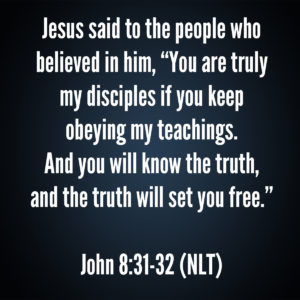Do We Understand How God Is Just? (Part 1)

If we are honest, all of us know we have messed up in some areas of life, and some of us have messed up a lot. When we consider being held accountable for our actions I think we all want, or hope, for mercy to win over judgment. Just how or why could that be the case if we are brought before a judge about our actions? What about being brought before God over our lifetime of actions and words? Will we receive justice or mercy? How do we define what justice and mercy are?
O. J. Simpson, a former football star who killed his wife and her friend in a brutal knife slaying, recently died of cancer. This football player was loved by many people in this country until this brutal murder. Simpson hired the best attorneys money could buy, and convinced a jury he was not guilty because they wanted to send a message to the country that they didn’t like or agree with the justice system in America. The whole country was astonished at their verdict over the guilty man who went into a killing rage.
I still remember the general public outrage that people would deny the facts of this case because of slick lawyers and their own prejudice. People were outraged that justice was not done in this trial of O. J. Simpson, and our legal system failed. The country felt the legal system was hijacked by people who didn’t care about justice being done, but only their own particular bias.
Jesus dealt with issues like defining how God will judge us and why, or even if, mercy triumphs over justice. Is justice is always absolute? The context in which Jesus speaks about God’s justice system revolves around the truth that every tree is know by its fruit. The people Jesus was speaking to pretended to have justice in their hearts, but hate was really their motivation, and they hated Jesus and his words. Look at what Jesus says about the day of judgment for every one of us:
Matthew 12:36-37
And I tell you this, that you must give an account on judgment day of every idle word you speak. The words you say now reflect your fate then; either you will be justified by them or you will be condemned.
Jesus makes it clear that we will be “Justified or Condemned” based on what we say in life. In other words, we will be evaluated by whether our words are backed up by facts or our words are empty.
It has been said that words are cheap, but actions speak louder than words. If this statement is true, and I believe it is, what we have confessed either to God or others will be evaluated by God on the day of judgment to see if they have “Substance” or if our words really meant nothing at all. We often are more like politicians in that our words are nothing more than “HOT AIR” because we never had any real intention to do anything about what we said or promised.
I fear that many who claim Jesus as their Savior falsely believe God will look the other way on the day of our judgment because of what Jesus did on the cross. Although this could be true, it also may be false. Why? Because God will still look at our words and how we either lived them out or didn’t, even when we claim Jesus as our savior.
God will look at what we said on the supposed day of our conversion and see if there was any substance to our confession of surrender to Christ, or whether they were just words we said in a sinners prayer hoping for forgiveness and absolution without true surrender. God will not be fooled by some slick lawyer like those O. J. Simpson had and acquit us, but will rather look at the facts of our confession.
The gospels define Jesus’ ministry as starting out with the simple idea of repentance: a change of mindset that changes our course in life. “Repentance” is the awareness that we are going the wrong way and trusting the wrong person in our lives. Jesus’ disciples understood that he was presenting himself as this “Potential” messiah if and when they truly repented by following him as their personal messiah, not making Jesus one of many messiahs.
Many professing believers have never totally yielded to Jesus to follow him. Rather, they have embraced Jesus as their “FORGIVER,” not their lord. They have embraced Jesus as their sacrificial lamb but not their true messiah to follow. They confess Jesus forgives them but if you look for facts to back up that statement there is little to no evidence. They may exhibit some religious habits like going to church services, or singing religious songs or even feeling good about Jesus; but there is no real evidence that Jesus is their Lord.
Somehow our theology has embraced ideas without heart change or change of mindset. Our theology is more about following religious practices like the Jews of old who claimed to be God’s people without a genuine relationship to back up the claim. I do believe in going to church and singing songs of deliverance and affection towards and for God, but that in itself does not “JUSTIFY” our relationship with God.
One of my favorite verses in the Bible comes from the prophet Micah in the Old Testament in which God tells us 3 things that God requires of us. In other words, he boils it down to just 3 things he “REQUIRES” of us that show we are “FACTUALLY” living up to the title children of God.
Micah 6:8
He has shown you, O man, what is good; and what does the LORD require of you –But to do justly -To love mercy – and to walk humbly with your God?
If the first thing is to “DO” justly, what does it mean to uphold being just in our lives with God and others? If we don’t understand the word, or how to apply justice, how can we possibly fulfill God’s heart for us? The truth is we can’t, and God would never give us an instructive command without explaining what Justice is and how to apply it to our daily life.
I will be continuing this topic of what is justice and how it applies to us in part 2. I hope to apply not only God’s definition of what Justice is, but also how Jesus provides salvation by justifying us “legally” and not by just looking the other way with regards to our sin.
Questions:
1) Have you studied the meaning of “Justice” and how it applies to your salvation? What you understand defines how you can apply it.
2) Do you seek God regularly as to how you can live justly under the Lordship of Christ? If you are just expecting God to do all work you are missing the point of repentance.
May the Holy Spirit inspire our devotion in being justified,
Pastor Dale




Leave a Comment